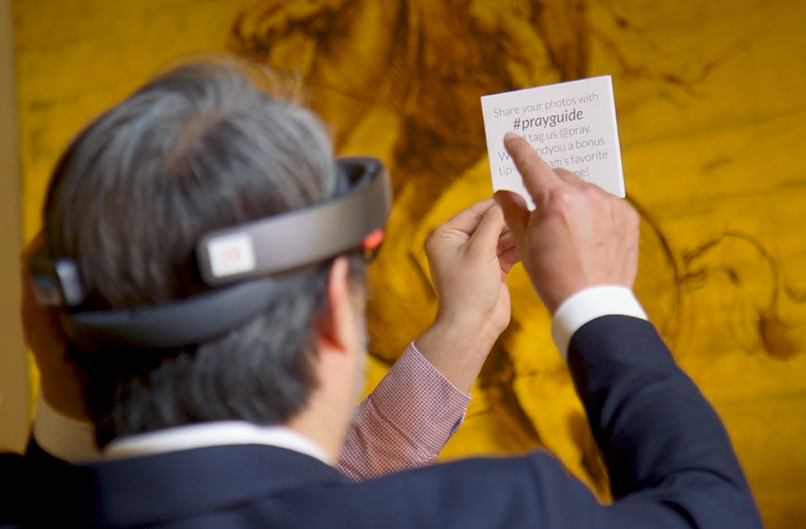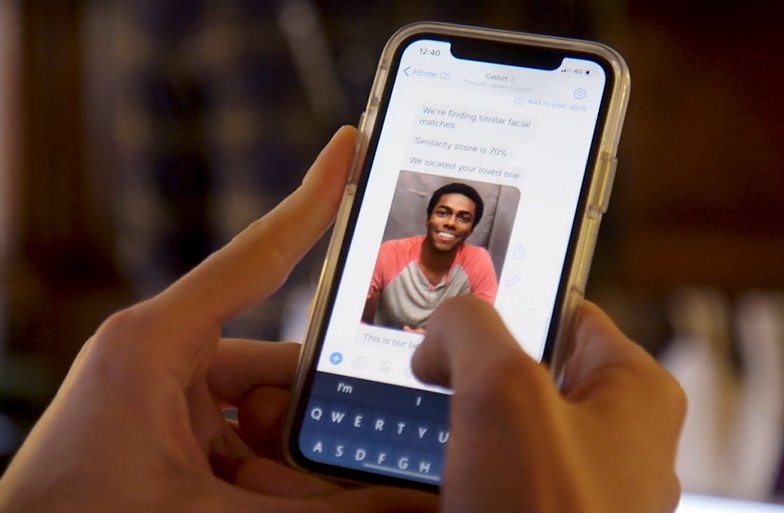- Home
- Education Sector
- Student Developer Blog
- Students hack for social good @ first-ever Vatican Hacks
- Subscribe to RSS Feed
- Mark as New
- Mark as Read
- Bookmark
- Subscribe
- Printer Friendly Page
- Report Inappropriate Content
“
How wonderful would it be if the growth of scientific and technological innovation would come along with more equality and social inclusion
?”
- Pope Francis
Recently we had an opportunity to support and mentor 120 students @ VHacks , the first-ever student hackathon hosted at Vatican City . They represented 60 different universities in 28 countries – from UC Berkeley to Georgetown, Chonnam National University in Korea to National Taiwan University. It was a celebration of so many cultures and beliefs, bringing together bright students with diverse academic, ethnic, and religious backgrounds. And these students were challenged to tackle some of the most difficult issues of our time such as social inclusion, interfaith dialogue, and aiding migrants & refugees.
To say these students rose to meet this challenge would be an understatement. Most of the teams had never met each other prior – their ability to ideate, form consensus, and develop a shared mission was inspiring. Their talents in design, development, and entrepreneurship were impressive. And in just 36 hours, they expressed their ideas through cutting-edge tech like Artificial Intelligence and Mixed Reality . Let’s take a look at just a sample of what these students created…
Zelixa – helping dyslexic people train themselves to read better
We were so impressed by the combination of vision and ambition that Team Zelixa brought to VHacks. The team used Hololens and Azure Computer Vision to analyze natural user inputs (eye position & focus) and printed reading materials (sentence structure, words, syllables, grammar, typefaces, and colors) to help people with dyslexia read more fluently in real-time. In the relatively short (36-hour) hackathon format, they achieved this by using a set of pre-trained, automated services like Optical Character Recognition (OCR) to output to a JSON file , breaking-down the specific attributes of text. The team researched common reading behaviors found in people diagnosed with dyslexia and built a model that transformed then converted the text into new images. Then, they used the Hololens to spatially map those images over the user’s reading experience in real-time. Nice! Sounds like a good project for Imagine Cup .

Vinculum – reuniting refugee families with their loved ones
Every year, tens of thousands of migrants and refugees lose one another in the process of relocation. Oftentimes they don’t have identity documentation with their family name or previous address. Team Vinculum had an idea that might help refugee camps have higher success rates in reuniting families especially over long distances. Using Face API – part of Azure Cognitive Services – they analyzed digital and printed photographs for common features that might suggest a parent-child relationship. By cross-referencing refugee camp records with their experimental Azure Machine Learning matching model, they might securely help local authorities have confidence in sending family members to the correct location. One of the particularly elegant things about Vinculum’s project was that they built a very lightweight web app noting that camps often have very limited internet bandwidth for large populations; every bit and every pixel counts when analyzing new images for a potential match.

You can learn more about the 9 finalist teams here !
Students – start building with Artificial Intelligence and Mixed Reality alike
These students at Vhacks just scratched the surface of what’s possible when you combine technologies like Azure’s AI and Windows Mixed Reality devices. What they did in just in 36 hours was quite amazing. Try these out for yourself here:
- Azure for Students ($100 credit and 25+ free products including AI)
- Windows Mixed Reality for Devs (Emulators & SDK)
Thank you!
This event took a huge team of visionaries and organizers alike. We had the opportunity to just show-up and mentor students – the fun part – so we’d like to thank the team of passionate people and orgs that made it all possible…
- Students at Harvard and MIT for your countless hours in bringing us all together
- OPTIC , a Vatican-affiliated global think-tank dedicated to ethnical issues of disruptive technologies for your vision and initiative
- Vatican’s Secretariat for Communication for your leadership and inspiration
- The Pontifical Council for Culture and Migrants & Refugees Section of the Dicastery for Integral Human Development – because many of you stayed-up all night to help the students
- Our fellow dev-advocates and mentors at Google – sharing our collective talents with the students alongside you. And geeking-out together over Hololens demos. :smiling_face_with_smiling_eyes:
- Anyone else we may have missed who made this possible – thank you!
You must be a registered user to add a comment. If you've already registered, sign in. Otherwise, register and sign in.